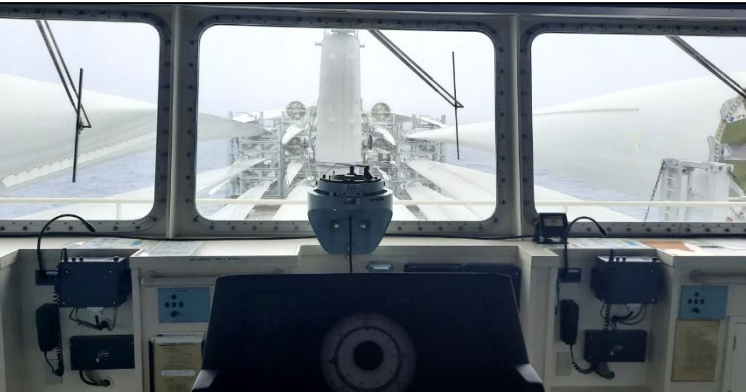The Coast Guard said it sees more cargo vessels arriving in U.S. ports transporting wind turbine parts “stowed in a manner that substantially limits visibility from the navigation bridge.”
Operators of breakbulk and retrofitted bulk carriers that are not in compliance with U.S. requirements for navigation bridge visibility standards must notify the local Coast Guard Sector before the vessel enters U.S. waters and request to deviate from the rule,” according to a Coast Guard marine safety information bulletin issued April 4.
Offshore wind developers are staging parts for projects underway in Northeast and mid-Atlantic waters, with carriers bringing in foundation and tower sections and turbine blades.
“Many of these vessels were issued dispensation letters by their flag administration or recognized organization that temporarily exempted compliance with the International Convention for the Safety of Life at Sea (SOLAS) 1974 Chapter V, Regulation 22, which specifies requirements regarding navigation bridge visibility standards,” according to the Coast Guard advisory. “In some cases, flag administrations have issued dispensations of SOLAS V/22, despite the vessel’s intended voyage requiring substantial transit within restricted navigational channels and confined inland waterways with congested maritime traffic.”
Such dispensation letters do not exempt operators from complying with U.S. standards, the Coast Guard said. When operators apply for a deviation from the U.S. rule, the local Coast Guard captain of the port can authorize it, “if the deviation does not impair the vessel’s safe navigation under anticipated conditions and will not violate the rules for preventing collisions at sea.”
Coast Guard permission may also “require additional mitigation measures,” the advisory states.
“The U.S. Coast Guard does not typically grant deviations for situations intentionally counter to the regulations or solely for convenience or financial incentive. Vessel owners, operators, flag administrations, and recognized organizations should ensure adequate voyage planning, including selecting appropriate cargo stowage arrangements and verifying that the vessel will comply with all mandatory rules and regulations.”




